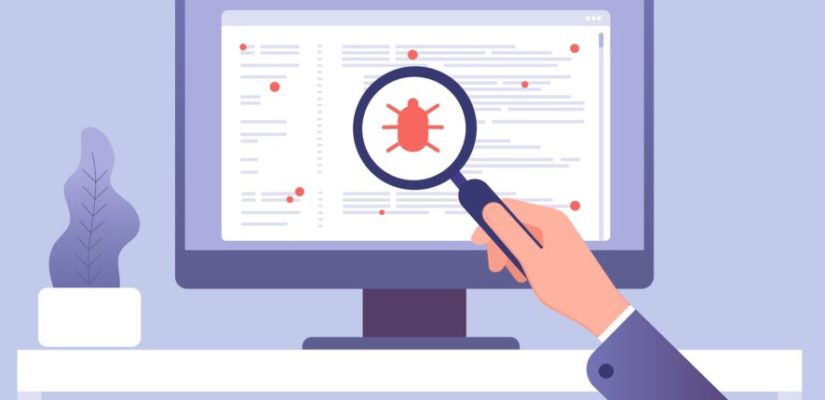
How to Optimize Java Code Performance to Stay Competitive in 2022?
While working on any Java-based application, the concept of optimization has its own set of importance. It is important to understand that the code is not only clean, without defects but also properly optimized. The time taken by the code to run should be minimum. In order to achieve this, follow Java coding standards to make sure if it is as per the standards.
But sometimes we don’t have the time to actually review the code due to deadline constraints. In such scenarios, you can hire Java developer for expert tips while doing coding of any requirement. Some of the tips are discussed here to make minute changes to code for fixing the performance during the testing phase.
Tips to Optimize Java Code Performance
1. Avoid Writing Long Methods
The methods should be short and specific to perform single functionality. It is important for maintenance as well as performance since while class loading and during method call, it is loaded within the stack memory. If methods are large with rigorous processing required, it will consume memory as well as CPU cycles to run. Try to clear the methods into smaller ones at appropriate logical points.
2. Avoid Multiple If-else Statements
We generally use conditional statements for decision-making. But conditional statements should be use in limit. If we are using too much conditional it will impact performance as JVM will have to compare the conditions. This can become more troublesome if the same are used in looping statements including for, while etc. If too many conditions are present, just group the conditions and use it in if statement. Another option, use switch statement rather than multiple if-else. Switch statement has performance advantage over if – else.
Example
if (condition1) {
if (condition2) {
if (condition3 || condition4) { execute ..}
else { execute..}
Note: Avoid above sample and implement this as follows:
boolean result = (condition1 && condition2) && (condition3 || condition4)
3. Avoid Getting the Size of the Collection in the Loop
Make sure while iterating through any collection get the size of the collection beforehand and avoid it during iteration. The sample is given below as an example which must be avoided as follows:
Example:
List<String> objList = getData();
for (int i = 0; i < objList.size(); i++) { execute code ..}
Note: Avoid above sample and implement this as follows:
List<String> objList = getData();
int size = objList.size();
for (int i = 0; i < size; i++) { execute code ..}
4. Avoid String Objects for Concatenation
String is an absolute class the object created and cannot be reused. Hence if we need to build a large string in case of SQL queries, it is not a great idea to concatenate the String object using the ‘+’ operator. This results into multiple objects of String developed leading to more usage of heap memory. In this case, StringBuilder or StringBuffer can be used, the former is recommended by Java Software Development Company since it has a performance benefit due to non-synchronized techniues. The sample is provided below as an illustration which is to be avoided as follows:
Example:
String query = String1+String2+String3;
Note: Avoid above sample and implement this as follows:
StringBuilder strBuilder = new StringBuilder(“”);
strBuilder.append(String1).append(String2).append(String3);
String query = strBuilder.toString();
5. Use Primitive Types Wherever Possible
Implementation of primitive types over objects is advantageous since the primitive type data is placed on stack memory and the objects are in the heap memory. If possible, we can use primitive types rather than objects since accessing data from stack memory is faster than heap memory. Thus it is always beneficial to use int rather than Integer or double over Double.
6. Avoid Using BigDecimal Class
BigDecimal class offers the accurate precision for the decimal values. Over usage of it lowers the performance specifically when the same is used to analyze specific values in a loop. BigDecimal consumes a lot of memory over long or double to carry out calculations. If precision is not the limitation or if we are sure the range of the calculated value will not exceed long or double, we can avoid using BigDecimal and implement long or double with proper casting instead.
Frequently Asked Questions
1. How does it improve the performance of Java?
Load testing tools and Application Performance Management (APM) solutions are commonly used to track and optimize the performance of Java applications. Running load tests around different application scenarios and simultaneously monitoring CPU, IO, Heap usage, etc. using APM tools are key to identifying bottlenecks.
2. What causes performance issues in Java?
High CPU usage of the JVM can be caused by excessive garbage collection. When you don’t see your application threads taking CPU, check the performance of garbage collection. A memory issue can manifest as high CPU usage, making performance diagnosis difficult.
3. Does code optimization improve system performance?
Optimization can reduce readability and add code that is used only to improve the performance. This may complicate programs or systems, making them harder to maintain and debug. As a result, optimization or performance tuning is often performed at the end of the development stage.
Wrapping Up:
Most developers consider performance optimization a complex job that needs a lot of efforts and knowledge. Okay, that’s not completely wrong. Optimizing an application to enjoy the best performance isn’t a simple job. But there are easy steps you can implement to improve the performance of your applications, even if you’re not an expert.
Today’s post listed 6 of such simple steps. As you’ve seen, not all steps needed a lot of work to improve the Java application performance. Most of the tips for application optimization in this blog post aren’t hard to apply to your code.

